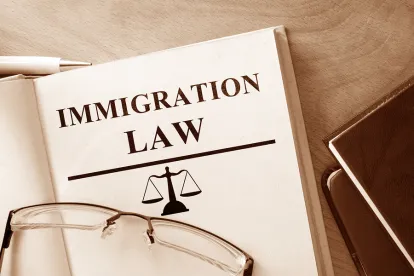There are many ways employers may run afoul of the anti-discrimination provisions in U.S. immigration law. As a very clear starting point, the general rule for a long time has been and remains an employer may not make hiring, firing, or recruitment / referral decisions based on a worker’s citizenship status. However, there are notable exceptions and the one relevant here relates to controlled goods.
For these purposes, the definition of controlled goods includes their documentation – typically referred to a technical data – and means those goods which are subject to either the International Traffic in Arms (ITAR) or Export Administration Regulations (EAR) laws and regulations. ITAR is the export license restrictions which regulate military and defense articles, whereas BIS controls other higher tech exports which are subject to export license restrictions. As part of their regulatory regimes, both agencies (and some others of more limited scope) regulate when and how non-U.S. persons may gain access to either the actual good, the technical data or both, and require some form of notice to and pre-approval by the agency.
Two recent settlements serve as a reminder why a proper plan is key not just to getting through the project successfully, but also staffing it properly. To begin with, ITAR and EAR both require that access to the controlled goods and/or the related technical data must be denied to those who do not qualify as U.S. persons unless there is prior agency approval. Most employers readily conclude that if someone is a U.S. citizen, they are permitted access. A similar conclusion is usually reached when it comes to green card holders, but that is not the end of the analysis and it is these other nuances that are the cause for the settlements in question.
The relevant definition of a U.S. person can be found at 8 U.S.C. 1324b and 28 CFR 44.101(k):
- An individual who is —
- a citizen or national of the United States,
- an alien who is lawfully admitted for permanent residence,
- granted the status of an alien lawfully admitted for temporary residence as seasonal agriculture worker or pre-1962 lawful resident,
- admitted as a refugee, or
- granted asylum; BUT
- excludes an alien who fails to timely apply for lawful permanent residence or naturalization or is not timely granted such status.
One settlement was announced on February 1, 2019 and involved Honda Aircraft Company LLC (HAC) which manufactures and sells business jet aircraft. According to the Dept. of Justice, HAC issued 25 job postings that limited applicants to the specific status of citizen or green card holder. The settlement involved payment of a civil penalty of $44,626, the removal of all specific citizenship requirements from current and future job postings unless they are authorized by law, to go along with the additional training of certain staff so the law is administered correctly.
Equally notable, and certainly a reminder that even sometimes the lawyers cannot get it right, is the August 2018 settlement with Clifford Chance US LLP arising out of its staffing of a client document review project. This situation involved 36 positions and the failure to hire both U.S. persons, but also dual U.S. citizens, to staff the project. The settlement involved Clifford Chance “offering to pay” lost wages to three individuals who were removed from the project, paying a $132,000 civil penalty, training relevant employees, informing clients who request citizenship restrictions and being “subject to departmental monitoring and reporting requirements for two years.”
The fact there is a reference to “informing clients who request citizenship restrictions” would seem to suggest a client made a request and the law firm failed to properly counsel the client as well as staff the project. However, the settlement language is unclear and leaves one thinking that perhaps the law firm itself was having its own difficulty properly defining a U.S. person. You decide for yourself:
Within forty-five (45) days of the Effective Date and thereafter during the Term of this Agreement, Respondent shall keep a log of client requests to attorneys, paralegals, and office managers in Respondent’s D.C. location/office, whose practice includes or whose work supports Respondent’s Litigation and Dispute Resolution practice, to place restrictions on hiring or assignment based on citizenship status. The log shall reflect the following: (1) date of the client’s request, (2) identity of Respondent employee or official receiving the request, (3) number of positions restricted, (4) dates of the project or task, (5) basis for the restriction including a citation to the pertinent rule, law, or executive order or quoting the pertinent language of the government contract, (6) that Respondent, per its client notification procedure, provided the client with information about employer non-discrimination obligations under 8 U.S.C. § 1324b, and, if applicable, (7) identity of the staffing agency or e-discovery vendor to whom Respondent made the request to staff any project based on the client’s request.
There are two other contexts where an inquiry about citizenship may be proper. First, if a company is looking at two candidates of equal qualification and the position is not otherwise limited to being filled by U.S. persons, those making hiring decisions should keep in mind 28 CFR 44.200(b)(2) which states that “[n]otwithstanding any other provision of this part, it is not an unfair immigration-related employment practice for a person or entity to prefer to hire an individual, or to recruit or refer for a fee an individual, who is a citizen or national of the United States over another individual who is an alien if the two individuals are equally qualified.” However, if the company is relying on this exception, keeping the supporting documentation in good order is, of course, key.
Second, if you are seeking an H-1 specialty (professional worker) or Trade NAFTA professional visa, there is the I-129 provision which requires disclosure of whether an export license is required. See Part 6 of the I-129 form.
More broadly, employers would be well-served to keep in mind the brochure the Dept. of Justice’s Immigration & Employee Rights Section of the Civil Rights Division published in July 2018. See Information for Employers About Citizenship Status Discrimination, which can be found here, which discusses the basic questions:
- What is employment discrimination based on citizenship status?
- Who is protected from citizenship status discrimination in hiring, first and recruitment/referral for a fee?
- May I ask applicants for citizenship or immigration status information?
- If my company engages in activity regulated by the ITAR or EAR, does the ITAR or EAR require me to hire only U.S. citizens?
- What kind of language in job postings could result in citizenship status discrimination claims?
The answers to 3 and 4 in summary explain, as we have said above, that employers may ask whether a potential employee has the legal right to work in the U.S., but hiring staff to work on ITAR or EAR related issues is not limited to only U.S. citizens.




 />i
/>i
